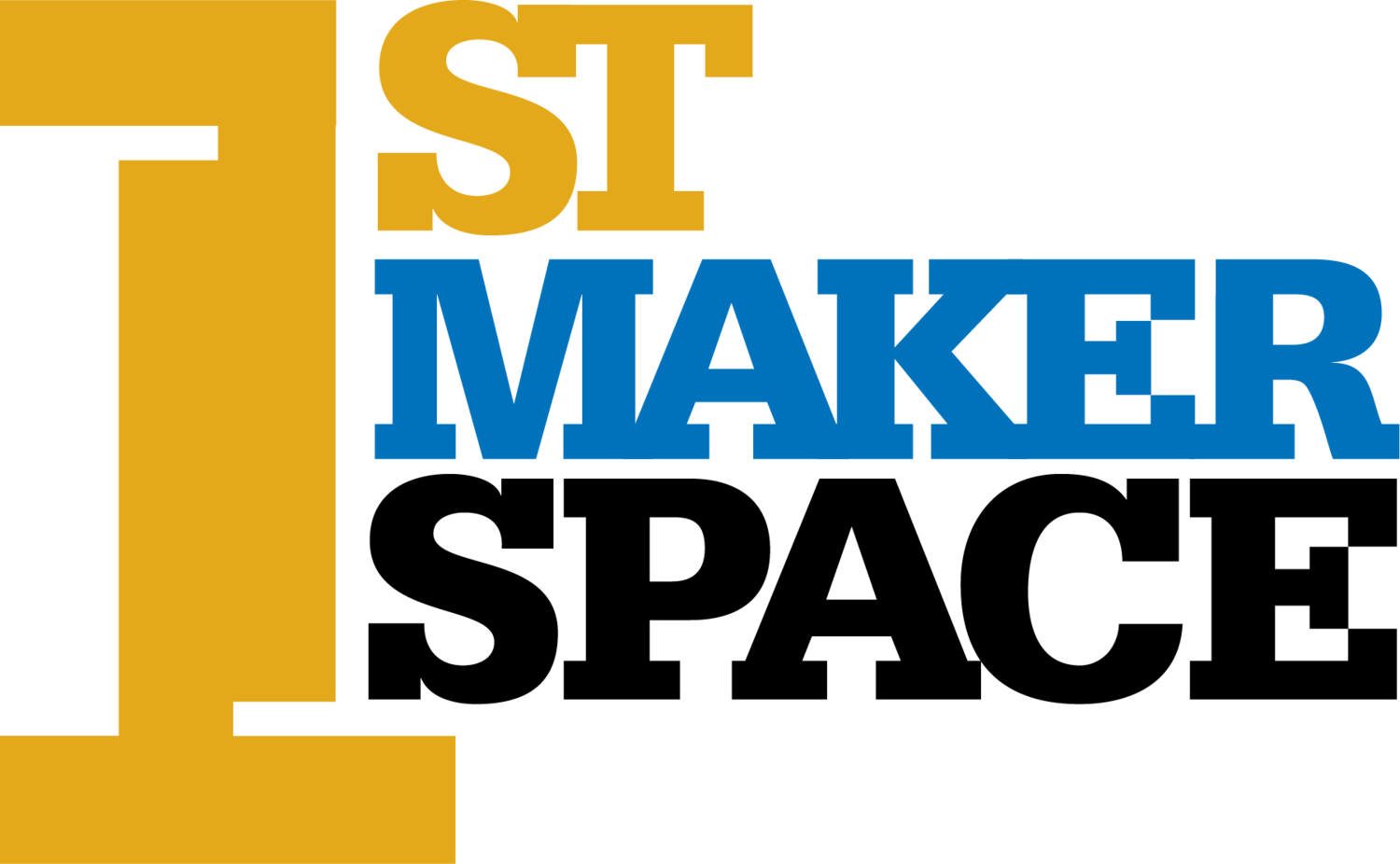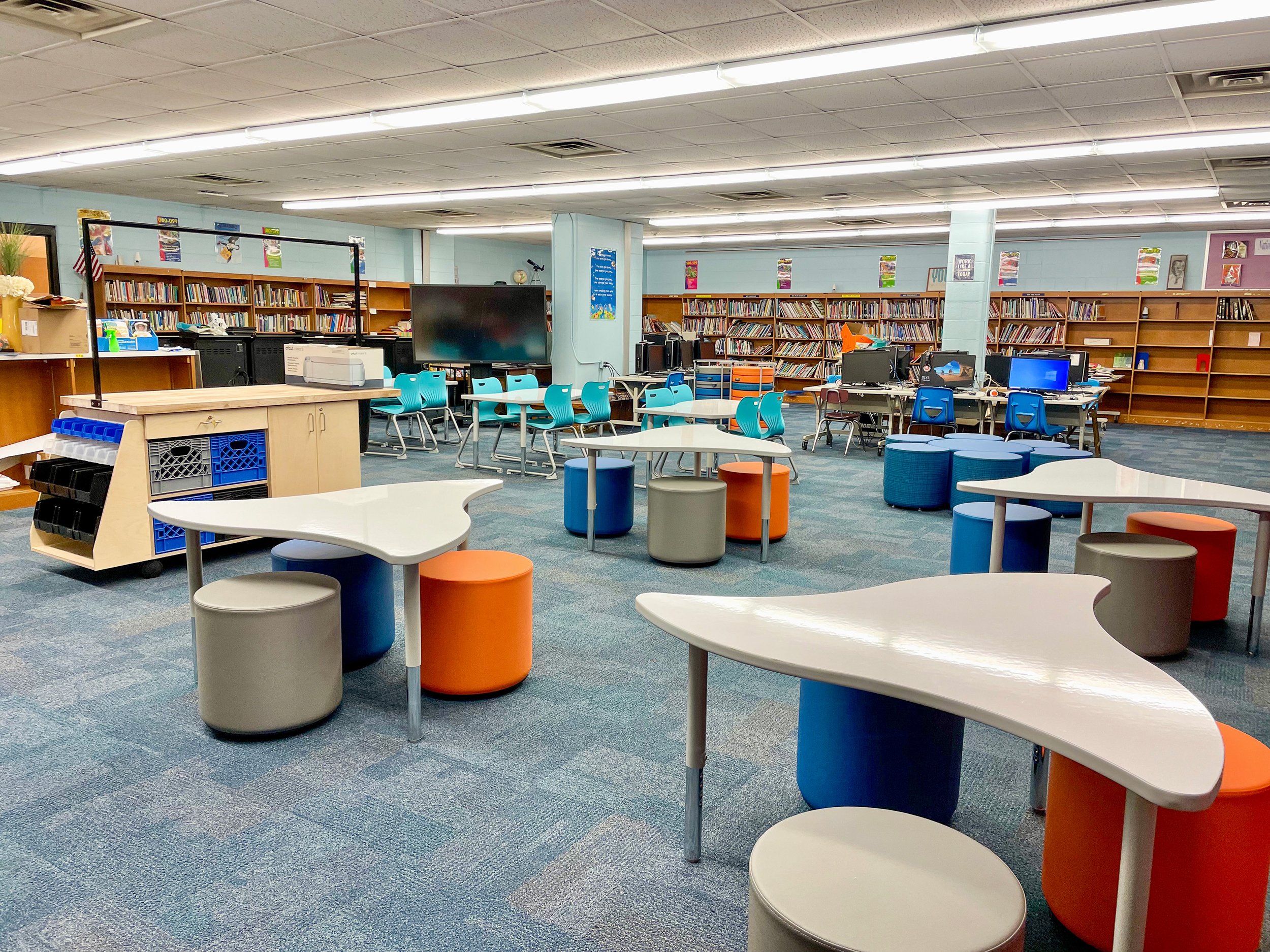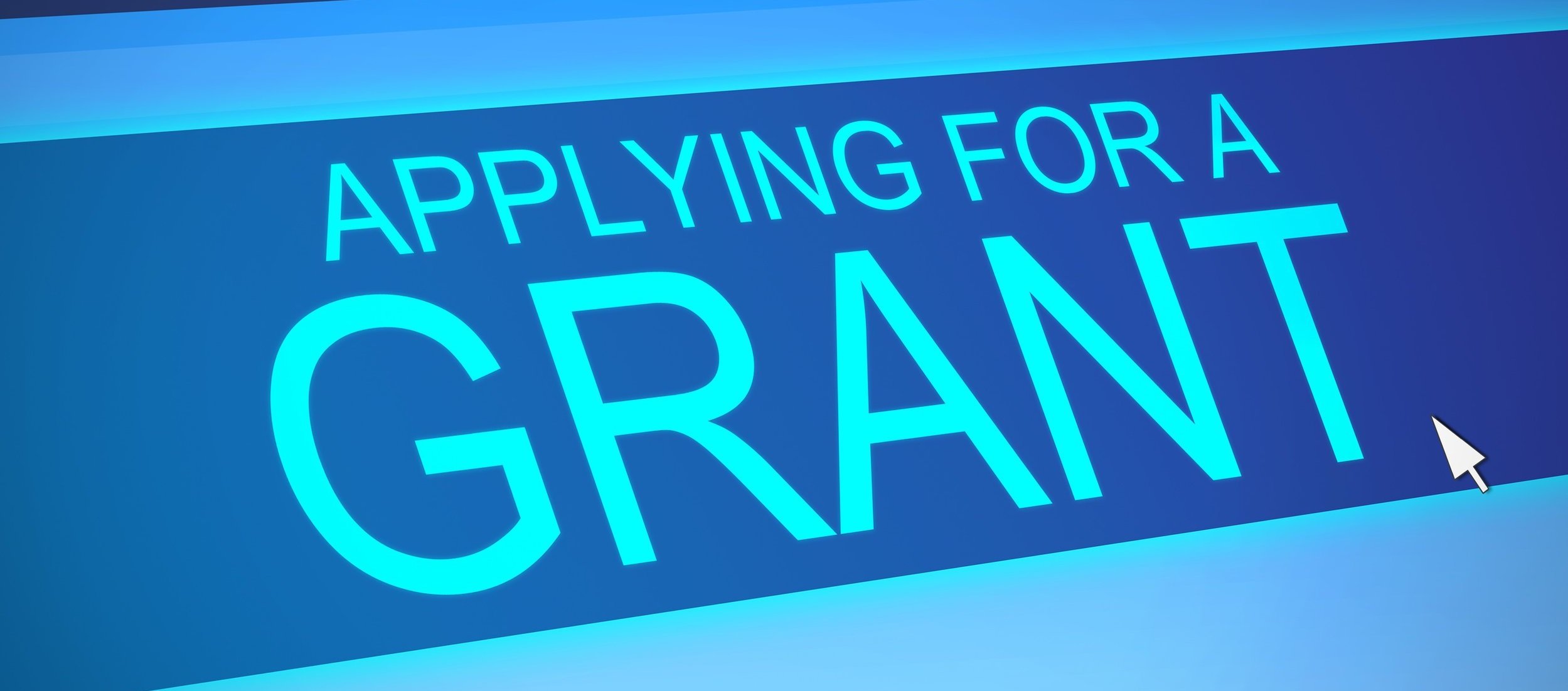How To Fund Your Makerspace With Grants
Finding funding for makerspaces, STEM labs, professional development, etc., can be daunting, but this detailed guide simplifies the process. We will explore various grant opportunities, from government programs to private grants, delving into the specifics of each option and specific contributions you can apply for to help you fund your makerspace or STEM lab. With perseverance and a well-crafted proposal, you can achieve the funding needed to create an inspiring and hands-on learning environment in your school or community.
Download PDF Version Here
Overview of Makerspace Grants
Makerspaces allow individuals to create, collaborate, and learn hands-on experiences. As critical components of schools, libraries, and community centers, demand for makerspace grants has recently increased. This guide covers the available funding opportunities, focusing on essential elements needed for securing funds and helping STEM educators make an impact.
Types of Makerspace Grants
As numerous funding opportunities exist, this guide will break down the most relevant ones for makerspaces:
Federal Formula Grants
Agencies, such as the Department of Education (DOE), offer various federal formula grants to support local school reform, technology in educational settings, and workforce development. Specific grants include:
DOE Education Innovation and Research - The EIR program is designed to generate and validate solutions to persistent educational challenges and to support the expansion of innovative solutions to serve larger numbers of students. This program supports engagement by helping to scale and sustain initiatives at various stages that improve student outcomes.
DOE 21st Century Community Learning Centers - This program provides money for before- and after-school programs. Funds may be used for expanding learning activities or any area of enrichment and include technology, such as robotic kits, engineering kits, science kits, STEM Education kits, and telecommunication education.
National Science Foundation (NSF) Grants
The NSF offers various STEM-focused grants, such as:
Innovative Technology Experiences for Students and Teachers - This is one of several grants awarded by the National Science Foundation, a Federal agency. It is designed to expose students to STEM careers and provide them with technology-rich experiences.
Research Experiences for Teachers - Supports summer research experiences for K-14 educators that foster long-term collaborations between universities, community colleges, school districts, and industry partners.
Discretionary Grants
Other discretionary grant programs support different aspects of education, including innovative learning environments and workforce readiness. Examples include:
SAXENA - The Saxena Family Foundation is a privately funded, 501(c) (3) registered non-profit charitable foundation headquartered in Austin, Texas. The Foundation awards grants and supports programs focusing on S.T.E.M (Science, Technology, Engineering, Math) education and empowering women in the United States and India.
Private Grants
Corporations, private foundations, and nonprofits offer grants to support STEM education initiatives or innovative learning environments. Some opportunities include:
AFCEA - The Gravely & Paige Grants provide funding to elementary and middle schools in the United States to promote STEM innovation in the classroom, emphasizing academic programs.
After School Alliance- Funding Afterschool STEM. A short list of funding opportunities specifically for STEM education.
Alcoa - Funds projects that support global education, workplace skills, and safe & healthy children.
American Honda Foundation - The focus of these grants is on math, science, and technology.
The Dekko Foundation- We make grants in places where our founder had business or personal interests. Those areas include: Alabama, Indiana, Iowa and Minnesota.
Gates Foundation - Supports raising graduation rates and graduates who will be strong citizens ready for college or the workplace. Provide tools for Makerspaces, libraries, and future engineers.
Halliburton Grant Program- Halliburton, the Halliburton Foundation, and the Halliburton Charitable Foundation provide community support by contributing time, charitable donations, and resources to charities and nonprofit organizations around the world. Halliburton’s charitable efforts center on its four pillars of giving – education, environment, health & safety, and social services.
Honda Community Grant - This grant funds public school districts to secure classroom technology or STEM curriculum.
IEEE Foundation- IEEE and IEEE Foundation programs are where philanthropy and technology intersect.
Joyce Foundation- We invest in policies to advance racial equity and economic mobility in the Great Lakes region.
Meta Data Center Community Action Grants- Our annual Meta Data Center Community Action Grants program provides direct funding to schools, registered nonprofits and community organizations in locations where we have an operational data center.
Motorola Solutions Foundation- The Motorola Solutions Foundation, which has donated $100 million over the past 10 years, prioritizes support for first responders, technology and engineering education and underrepresented groups.
National Education Association Foundation Learning and Leadership Grants- Learning and Leadership Grants are available to individual educators or groups of educators who are pursuing high-quality professional learning experiences that will enhance their classroom teaching, leadership skills, or professional partnerships.
National Education Association Foundation Student Success Grants- Grants up to $5,000 are available. Grants fund activities for 12 months from the date of the award. Student Success Grants are available to public school educators, specialized instructional support personnel, and education support professionals who are interested in enhancing students’ learning experiences.
New York Life Foundation- The New York Life Foundation invests in programs that benefit young people, particularly in educational enhancement and childhood bereavement support.
PNC Foundation- The PNC Foundation's priority is to form partnerships with community-based nonprofit organizations in order to enhance educational opportunities, with an emphasis on early childhood education, and to promote the growth of communities through economic development initiatives.
Roche Diagnostics- We believe in the long-term impact of education to improve the lives of children, their families, and communities. In partnership with local institutions, we support education programmes designed to inspire children and youth from primary grades through university. We do this to accelerate science education and literacy.
Rural Tech Fund- We provide grants for Rural Technology Education projects and Assistive Technology projects. Our average grant ranges from $500-$2500. Larger amounts are considered for projects whose impact reaches large groups of students.
Sensata Technologies Foundation- The Sensata Foundation invites registered 501(c)(3) non-profit organizations to submit an application for a Sensata Foundation grant. We provide grants to fund specific programs/projects rather than general operating support and prioritize agencies that serve local communities where our employees live and work in the U.S. and align with the Foundation’s two focus areas – STEM Education and Community Support. The grants, which are typically one-year awards, vary in size but generally range from $5,000 to $25,000.
Society for Science- The STEM Action Grant program aims to bolster and support community-driven nonprofit organizations that are working to enhance the public’s understanding of science and to increase participation of underrepresented populations in STEM fields. The STEM Action Grant program provides small grants of up to $5,000 to innovative nonprofit organizations led by social entrepreneurs.
Sony Grants - While support in other areas may also be considered, the Company seeks to apply its financial, technological, and human resources to encourage the creative, artistic, technical, and scientific skills required of tomorrow's workforce.
Toshiba America Foundation - Sixth to 12th-grade teachers are invited to apply online for a Toshiba America Foundation grant of up to $5,000 and more than $5,000 to help bring an innovative project into their classroom.
Verizon - For education grants, Verizon and Verizon Foundation funding is intended to support projects that promote digital skills development for students and teachers in grades K-12. This includes, for example, summer or afterschool programs in Science, Technology, Engineering, and Math (STEM), teacher professional development, and research on technology-infused pedagogy. Schools and districts that apply for grants from Verizon and are eligible for the Education Rate (E-Rate) program may not use grant funding to purchase technology hardware (computers, netbooks, laptops, routers), devices (tablets, phones), data or Internet service and access, unless approved by Verizon compliance.
Walmart Spark Good- Walmart Spark Good strives to spark collective action and create a big impact in support of local communities. As a NCES school, you can access Spark Good programs such as our Spark Good Local Grants, Spark Good Registry, Round Up, Space Tool and Associate Giving and Volunteerism.
NOTE: Pay attention to local businesses that may be willing to support the local community and funding for a maker space. These spaces promote workforce development and enhance the local community.
Indiana-Specific Grants and Resources
Community Foundation of Muncie and Delaware County- Robert P. Bell Education grants are awarded from $50 to $600 to help teachers implement innovative ideas, programs, or projects that are related to a classroom unit or lesson.
Duke Energy Foundation - Focused on strengthening and uplifting communities in Indiana with grant funding up to $20,000, accepting applications on a rolling basis for various focus areas. The Application Process Step-By-Step link provides an overview of their grantmaking process.
Forum Credit Union- The Foundation designates $25,000 annually in educator grants ($3,000 maximum grant per educator). Grants may be used for any direct classroom expenses, including, but not limited to, supplies needed to fund a project for the classroom, basic supplies the classroom may be lacking, supplemental items to enhance classroom learning or an experience to enhance classroom learning.
IDOE - The Indiana Department of Education offers grant opportunities utilizing state and federal dollars, serves as a resource for local education agencies, and aims to strengthen education programs statewide by providing technical assistance, professional development, and compliance support.
IDOE Title IV Grant Information - Title IV-A offers districts flexible federal dollars to expand STEM opportunities, strengthen technology integration, and support safe, engaging learning environments.
IDOE Weekly Updates - Newsletters that include information on grants, among other updates.
Indiana GrantWatch - A portal to find grants and funding opportunities in Indiana.
Lilly Endowment - Supports efforts to enhance educational outcomes for K-12 students in Indiana and improve preparation for post-secondary education through funding various initiatives and programs.
Lumina Foundation- Lumina Foundation believes that education provides the basis for individual opportunity, economic vitality, and social stability.
Toyota Effect- At Toyota, we believe an auto company can also be a vehicle for change. That’s why Toyota is proud to partner with nonprofit organizations across the U.S. in the local communities where we live and work. Toyota and affiliates support programs in key areas: Education – Special consideration is given to STEM programs as we continue to develop our future workforce. Indiana Counties: Daviess, Dubois, Gibson, Knox, Pike, Posey, Spencer, Warrick, Vanderburgh
Local Grants
Some school systems have local foundations, such as Hamilton County, Indiana, where teachers and students from the district can apply for grants.
Crowdfunding Platforms
DonorsChoose -A favorite among schools and districts for crowdfunding projects like school trips and classroom supplies. The platform provides financial transparency and features that make it easy for administrators to know what projects are getting funded in their schools, contributing to significant wins for schools and districts. They also offer a teacher resource guide to help make the process even more accessible. Unlike other sites, DonorsChoose doesn't charge teachers commission, but they must shop at the site's vendor partners when using their funds.
ClassWish - Another favorite, allowing donors to contribute to any public, private, or parochial school, unlike some platforms such as DonorsChoose that only enable public schools to participate. However, ClassWish does charge a processing fee of 2.9 percent plus 30 cents per transaction and requires shopping from the site's vendor partners.
Adopt-A-Classroom - It has an inspiring mission, and its donors aren't forgotten once they've contributed. They receive updates on how their money was used. The site doesn't charge fees but requires all purchases with its approved list of vendors.
PledgeCents - Commonly referred to as the 'GoFundMe for teachers.' With over 1,700 schools in 51 states on their platform, PledgeCents sends checks directly to schools or organizations once all funds are raised. There are no platform fees, and educators who use their service can keep whatever funds they raise regardless of whether it meets their final goal.
Grant Research
Grants.gov - A comprehensive listing of the grants given by every federal agency. It also has a robust help center for those new to the grant application process.
GrantWatch - Every type of grant—federal, state, city, local, and foundational—can be found here, and you can effortlessly search by grant category and state.
STEM Education Coalition - The website offers information on STEM activity in the US and how to support those efforts. From the website, individuals can sign up for a free newsletter or follow posted information through Facebook, Twitter, or RSS feeds.
Other Financing Options
20 Tips for Crafting the Perfect Grant Proposal
Writing a successful grant proposal involves extensive research, thorough preparation, and an understanding of each funder's mission and requirements. Follow these tips for a stand-out makerspace grant proposal:
Answer all grant application questions.
Define the problem and propose a solution.
Explore school district and online grant opportunities.
Research needs and funding usage.
Clearly define the condition that the makerspace aims to address.
Understand desired resources and their purpose.
Gain experience as a grant reader.
Study grant organization's vision and goals.
Follow instructions and double-check before submission.
Aim high while adhering to the grant's rules.
Showcase existing initiatives in the proposal.
Present measurable outcomes by defining specific goals and explaining quantifiable results.
Focus on students' benefits and potential.
Highlight partnerships with other organizations or experts to demonstrate support.
Maintain a positive tone, avoiding complaints.
Proofread the proposal for clarity and grammar.
Collaborate with other educators or experts for insight and best practices.
Get non-educator input for clarity and jargon reduction.
Assemble a team for larger grants and involve district resources.
Include a detailed budget that breaks down costs and connects them to the project plan.
Conclusion
Obtaining funding for a STEM lab or makerspace is within reach if you take advantage of the numerous grant opportunities and learn to craft a winning proposal. As you embark on this journey, remember to celebrate milestones, share your progress with your community, and maintain your passion for innovation and growth. After all, makerspaces create spaces for collaboration and creativity and nurture tomorrow's problem-solvers and innovators.




